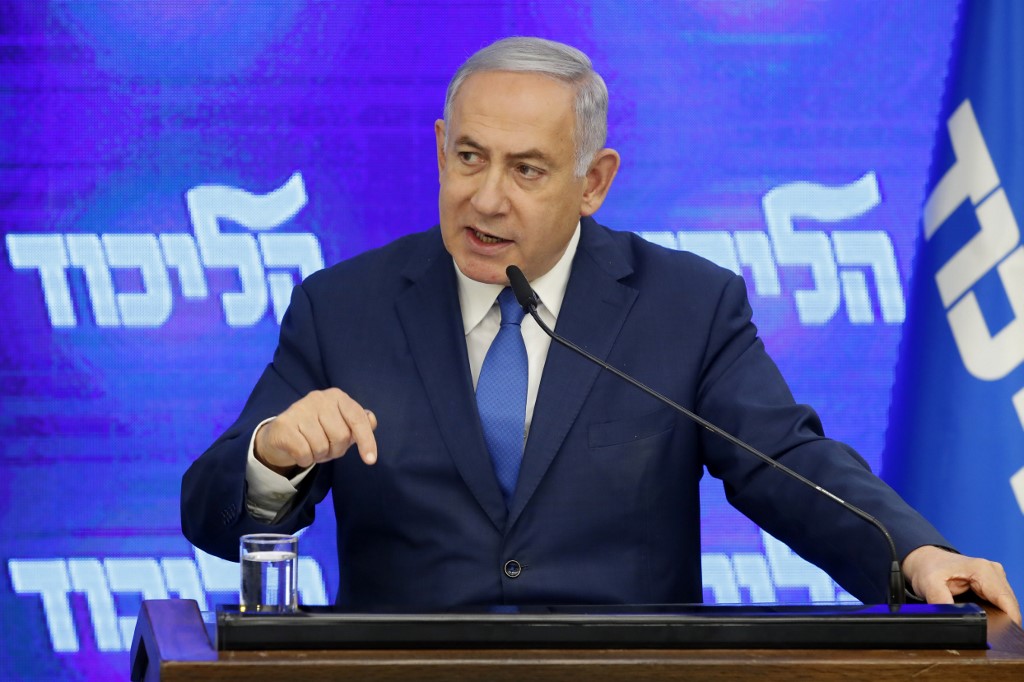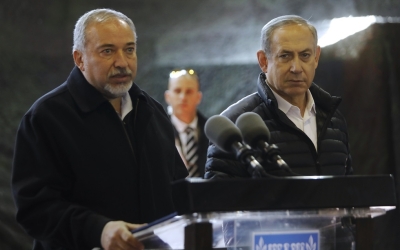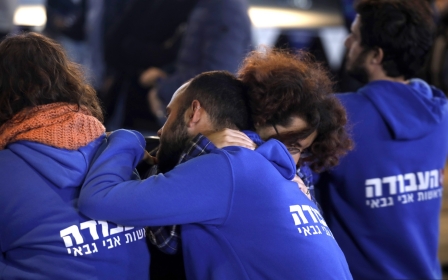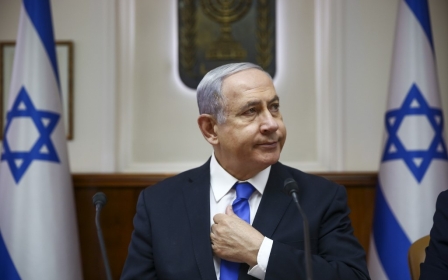How Netanyahu is using religion to shape Israel's elections
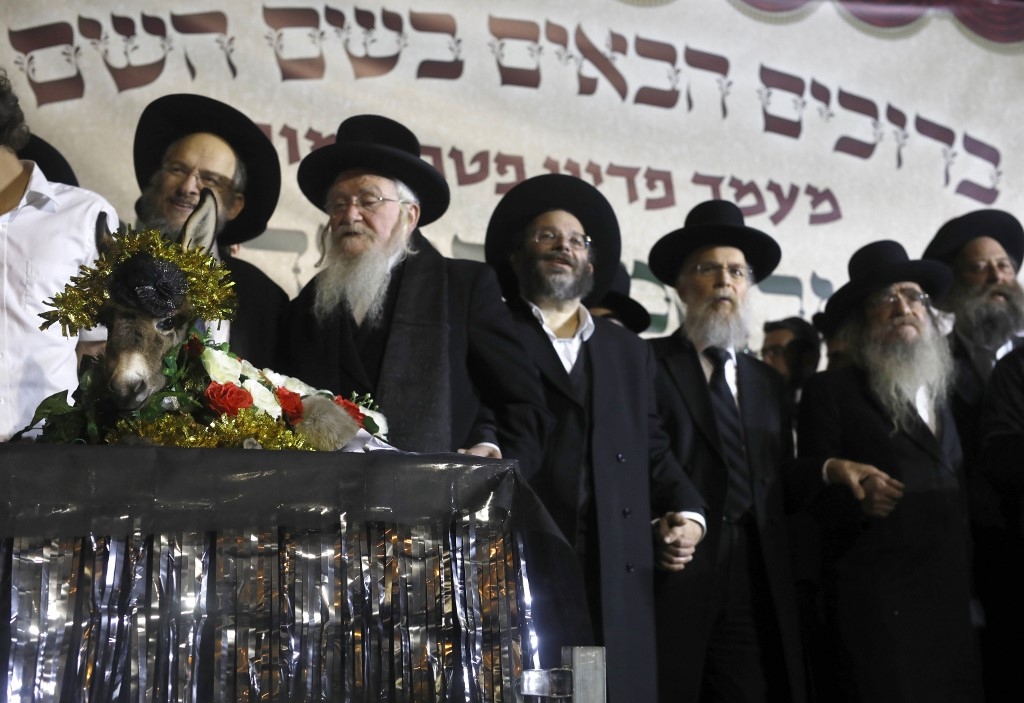
Although questions about the imposition of religious laws on the general public have always been part of Israel’s political discourse, the 17 September election will be the first in which religious questions will top the agenda.
How have all other issues - first and foremost, the occupation of Palestine - been pushed into the background?
Avigdor Lieberman, once Benjamin Netanyahu’s far-right ally, fired the opening shot after the 9 April election, when he refused to compromise with ultra-Orthodox parties and prevented Netanyahu from forming a coalition government. Lieberman dropped a bomb, indicating that the decades-old alliance between the religious and secular right in Israel could be brought to an end.
Public uproar
Ultra-Orthodox parties have not always been associated with the right wing, but cheap housing in the illegal West Bank colonies has lured them further and further in this direction. Their red line, however, remains their insistence that yeshiva students be exempt from military service.
New MEE newsletter: Jerusalem Dispatch
Sign up to get the latest insights and analysis on Israel-Palestine, alongside Turkey Unpacked and other MEE newsletters
In the months since the last election, a series of statements by well-known rabbis have caused an uproar among the secular public. The city of Afula conducted a gender-segregated public event whose legality was discussed in multiple courts. Prominent right-winger and transportation minister Bezalel Smotrich called for the imposition of Jewish religious law and education minister Rafi Peretz expressed support for conversion therapy.
This distribution of voters all but ensures the centre-left seculars will not be able to form a government
The journalist Meron Rapoport recently wrote a fascinating article exploring the prominence of religious discourse in the current election cycle. As many Israelis feel that the Palestinian issue is no longer important amid diminished Palestinian armed resistance, they are turning to other controversial issues, he noted - and this shift could spell the downfall of Netanyahu, who can no longer capitalise on his “security” credentials, but must attempt to rebuild the alliance between the religious and secular right if he has a chance of winning the election.
I disagree with this assessment. Firstly, I believe that Israelis are more threatened by non-violent than violent protest, and that Israeli public sentiment is anything but calm and complacent when it comes to Palestinian resistance to the occupation.
Newspaper headlines bombard the public with endless portents of disaster should another war with Gaza erupt, or the Boycott, Divestment and Sanctions (BDS) movement grow stronger, or the Palestinian Authority collapse. Israelis are all too aware that there is no longer a Jewish majority in the areas under Israeli control.
Extending the occupation
However, between Lieberman on the right and the Democratic Union on the left, no party offers a practical solution to these threats. Parties on the left tend to talk about the two-state solution, but mutter under their breath that some parts of the West Bank, and especially East Jerusalem, would be annexed, thereby precluding Palestinian agreement. Religious parties wait for a God-given miracle that would ensure Palestinian docility, and secular right parties replace God with US President Donald Trump in their plan to extend Israeli occupation indefinitely.
In addition, the notion that Netanyahu stands to lose from the discourse shift underestimates his mastery of the Israeli political system. The April election split Israeli parties over the issue of corruption. Could Netanyahu serve as prime minister while being indicted for bribery? Opposition parties no longer talk about this as much, focusing instead on religious freedoms.
A strong anti-religious sentiment has been cultivated in the Israeli liberal, secular middle-class for more than a century. Opposition politicians have referred to the ultra-Orthodox as “parasites” and evoked antisemitic tropes. Yet, such sentiments are always conflicted, as it is impossible to draw a line between anti-religiosity and anti-Judaism - and one cannot be anti-Jewish while simultaneously supporting a Jewish state in the name of Zionism.
Netanyahu knows that by stoking the fires of religious controversy, he’s dictating the agenda of the opposition. When Orthodox rabbis make hateful statements, such as Rabbi Eli Sadan recently saying that “secularism is a knife in the nation’s back”, they evoke provocative responses from the opposition, forcing Orthodox parties into Netanyahu’s camp.
Showing a diverse face
Meanwhile, Netanyahu appointed an openly gay minister of justice, Amir Ohana, to prove that Likud isn’t the same as the religious parties in its coalition. While Likud is showing a diverse face - combining misogyny and tolerance, orthodoxy and neoliberalism - opposition parties are rallying around a shrinking group of middle-class, secular liberals, mostly Ashkenazi Jews, who are pro-peace but simultaneously very militaristic.
This camp is divided into three political groups: the Blue and White alliance, the Labor Party and the Democratic Union. Blue and White, as well as Likud, are united in their decision to exclude the Joint List, representing Palestinian voters.
Netanyahu knows that almost invariably, Israelis tend to vote in tribal patterns. Orthodox Jews vote for Orthodox parties, middle-class Ashkenazis from Tel Aviv vote for leftists, and so on.
He also knows that there was never really a “secular” tribe in Israel. There is a small anti-religious tribe, and also many who would not insist on a separation of church and state, but would still like to be able to attend a concert without the family being split up by gender, or to use public transportation on the weekend. This distribution of voters all but ensures the centre-left seculars will not be able to form a government.
The views expressed in this article belong to the author and do not necessarily reflect the editorial policy of Middle East Eye.
This article is available in French on Middle East Eye French edition.
Middle East Eye delivers independent and unrivalled coverage and analysis of the Middle East, North Africa and beyond. To learn more about republishing this content and the associated fees, please fill out this form. More about MEE can be found here.



